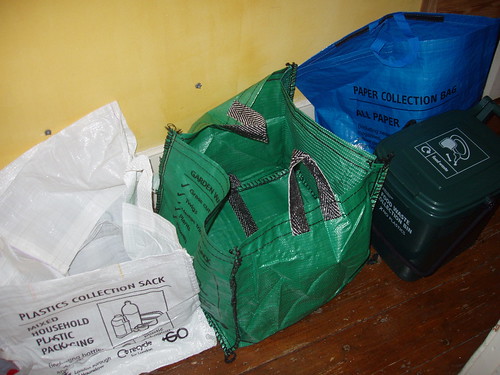
When cooking, all vegetable peelings and stalks go in the general waste bin along with the packaging and any meal time leftovers but have you ever wondered what happens to your general food waste? If you knew the answer would you aim to reduce it?
The Statistics
- Approximately 8.5 million tonnes of food and drink waste is produced in the UK each year
- This waste accounts for £23 billion and this statistic isn’t getting lower
- The majority of your general household waste goes into landfill. Not only do landfills take up space but they also produce methane which is a chemical that can be extremely harmful to the environment
- 18 million tonnes of carbon dioxide can be saved each year by recycling
Know Your Limits
There are a number of ways in which we can recycle the food that we leave over but these ways would never have to be put in place if leftovers were never created in the first place. It is important to know your limits when it comes to mealtime. Ensure you cook just enough food that will be eaten, therefore none will be left over.
Waste Confusion
One of the largest factors which contribute to the staggering waste food statistics is down to confusion surrounding waste management such as the best before and use by dates. A best before date is a guideline to which the food will be at its best. Take bread for example, bread that is slightly stale is great for toasting and will cause your body no harm at all. Whether to eat food beyond its best before dates is personal judgement and preference. Vegetables such as carrots and mushrooms last much longer than their stated ‘best before’, therefore when it comes to best before dates just use your initiative.
Food beyond its ‘Use by date’ should not be eaten; the majority of these foods will contain dairy or meat products which can give you an upset stomach if eaten beyond the date given.
Leftovers
There are loads of things you can do with left overs. In the olden days people used to make bubble and squeak. This is where the vegetables are all mashed together and made into cakes for frying in the pan. You can also save your leftovers and eat them at work the following day, this will also save you money that you would normally spend on lunch at work.
Composting
Composting is another great way you can utilise your waste food and general household waste.
Food items that CAN be added to your compost heap:
- All vegetables and fruit waste including peelings
- Old bread products including cakes and biscuits
- Noodles, pasta and rice
- Teabags, tea leaves, coffee or filters
- Egg shells
- Spices
- Paper and cardboard food packaging can also be recycled in your compost heap.
Food items that CAN’T be added to your compost heap:
- Meat or meat waste such as bones, gristle and skin
- Fish
- Dairy products including cheese, cream, butter, yoghurt
- Oils or fats of any kind
These items are no good for composting because they can attract pests and wild animals to your garden that are looking for food. They also cause an unpleasant smell when they rot. Some of these waste food items will also cause a chemical imbalance in your compost with can prevent plants from growing.
For more ways in which you can benefit from recycling visit www.slrconsulting.com
